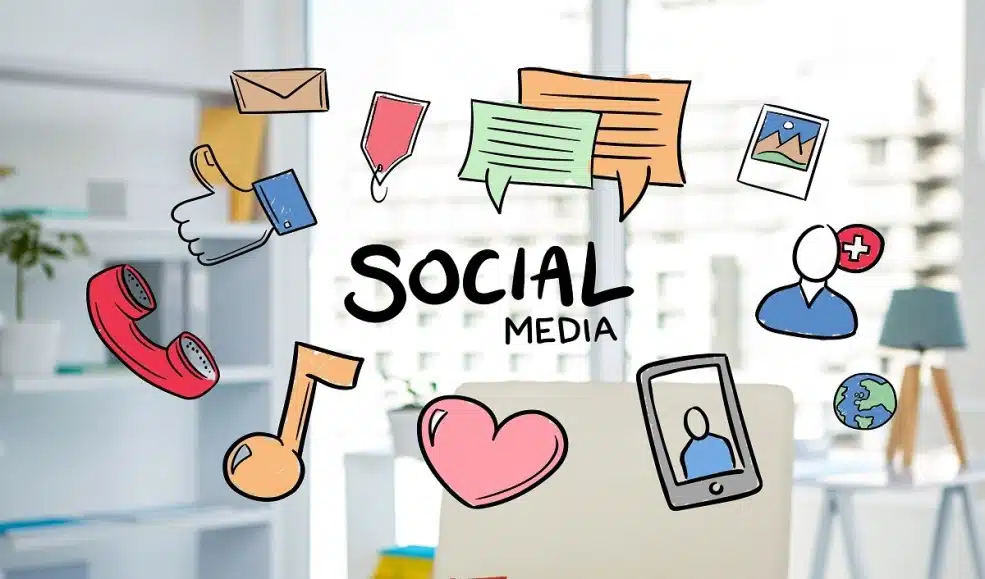Introduction:
Social media has revolutionized the way we communicate, connect, and share information in the modern world. From the early days of chat rooms and instant messaging to the vast array of platforms available today, social media has become an integral part of our daily lives. In this comprehensive article, we’ll explore the evolution of social media, its impact on society, and the opportunities and challenges it presents in today’s digital age.
The Evolution of Social Media:
The roots of social media can be traced back to the early days of the internet, with the emergence of platforms like Six Degrees and Friendster in the late 1990s and early 2000s. These platforms allowed users to create profiles, connect with friends, and share content online, laying the groundwork for the social networking revolution that would follow.
The launch of platforms like MySpace in 2003 and Facebook in 2004 marked a turning point in the history of social media. These platforms introduced features such as user profiles, friend networks, and photo sharing, making it easier than ever for people to connect and share their lives online.
As smartphones became ubiquitous and internet access became more widespread, social media usage soared. Platforms like Twitter, Instagram, Snapchat, and TikTok emerged, each offering unique features and catering to different audiences and interests. Today, social media encompasses a vast and diverse ecosystem of platforms, spanning everything from text-based microblogging to photo and video sharing, live streaming, and virtual reality.
The Impact of Social Media:
Social media has had a profound impact on society, culture, and the way we live our lives. It has transformed how we communicate with each other, consume news and information, and express ourselves creatively. It has also revolutionized industries such as marketing, entertainment, and journalism, creating new opportunities for content creators, influencers, and brands.
One of the most significant impacts of social media is its role in shaping public discourse and influencing opinions. Platforms like Twitter and Facebook have become key battlegrounds for political debates, social movements, and cultural conversations. They have empowered individuals and communities to amplify their voices, raise awareness about important issues, and mobilize for change.
However, social media has also been criticized for its role in spreading misinformation, fostering polarization, and perpetuating harmful behaviors such as cyberbullying and online harassment. The algorithms that power social media platforms are designed to prioritize engagement and keep users on the platform for as long as possible, which can lead to the spread of sensationalist content and echo chambers where users are only exposed to information that aligns with their existing beliefs.
The Opportunities and Challenges of Social Media:
While social media presents numerous opportunities for connection, creativity, and collaboration, it also poses significant challenges and risks. One of the biggest challenges is navigating the complex landscape of privacy and data security. Social media platforms collect vast amounts of personal data from users, which can be exploited for targeted advertising, surveillance, and other purposes.
Another challenge is the impact of social media on mental health and well-being. Studies have shown a correlation between excessive social media use and negative outcomes such as depression, anxiety, and low self-esteem. The constant pressure to curate the perfect online persona and compare oneself to others can take a toll on mental health, especially among young people.
Despite these challenges, social media remains a powerful tool for connection, expression, and empowerment. It has democratized access to information, enabled communities to form around shared interests and identities, and provided a platform for marginalized voices to be heard. As we continue to navigate the ever-changing landscape of social media, it’s essential to approach it with mindfulness, critical thinking, and a commitment to using it for positive social change.
Conclusion:
Social media has transformed the way we communicate, connect, and interact with the world around us. From its humble beginnings as online bulletin boards to the vast and interconnected ecosystem of platforms we know today, social media has become an integral part of our daily lives. It has transformed industries, shaped public discourse, and empowered individuals and communities to share their voices and stories with the world.
As we look to the future of social media, it’s essential to acknowledge its potential for both positive and negative impact. By harnessing its power for good, we can create more inclusive, equitable, and connected communities where everyone has a voice and a seat at the table. With careful thought and intention, we can ensure that social media continues to be a force for positive change in the years to come.

